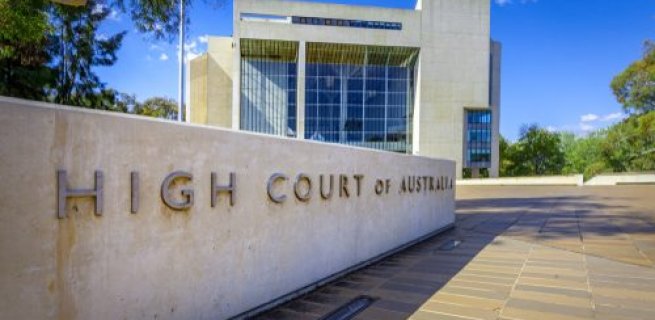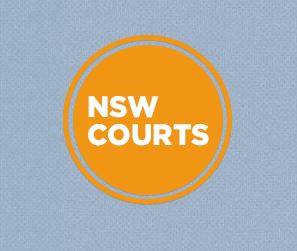By Paul Gregoire and Ugur Nedim
On 18 June 2016, Van Dung Nguyen was attending a party in the Northern Territory town of Palmerston. And at one point, he and another attendee, Muoi Nguyen, got into a verbal exchange about the latter’s refusal to follow the rules of a singing game.
Muoi claims that outside after the game Van hit him over the head with a bottle causing a fractured skull. However, Van’s version of events is that he was confronted by three men, who were blocking entry into the house. And he threw a bottle at Muoi, who was approaching him.
Van Dung Nguyen is then said to have fled the scene, only to be followed by two men. And one of the pursuers, Hung Tran, asserts that Nguyen turned and threw another bottle at him.
Mr Nguyen was subsequently arrested and charged with one count of common assault, contrary to subsection 188(1) of the Criminal Code Act 1983 (NT), and another count of aggravated assault with a weapon, under subsection 188(2)(m) of the Code.
The interview in question
Following his arrest, Nguyen was interviewed by police with the aid of an interpreter. He was issued with a caution prior to the interview. And on being asked to explain the caution in his own words, Nguyen said, “Whatever you ask and whatever I answer will be taken as evidence in the court.”
The Vietnamese man admitted to throwing the bottles, as well as making statements that could be taken as his having acted in self-defence. So, the interview is said to contain “mixed statements”, meaning it involves comments that are partially incriminatory and partially exculpatory.
Nguyen then stood trial. During the proceedings, the prosecution played the police interview, and the jury was unable to reach a verdict. As a second trial was about to take place, the prosecution advised that it wouldn’t be tendering the interview as evidence.
The judge presiding over the second trial asked the prosecution if it wasn’t presenting the interview as it would have a “better chance of winning”, to which the prosecutor said, “To be blunt, your Honour, yes it’s a tactical decision”.
The defence challenged the prosecution’s decision to do this, claiming that as the interview was a mixed statement, it was admissible in court and should be tendered accordingly.
So, the trial judge put two questions to the NT Court of Criminal Appeal (NTCCA), which involved whether the interview was admissible as evidence, and whether the prosecutor was obliged to tender it in court.
Basing its decision on the 2019 NTCCA case Singh versus The Queen, the full bench of the appeals court found that while the evidence was indeed admissible, it considered there was no general rule requiring the prosecution to tender a recorded interview simply because it is admissible.
To the highest court
Nguyen’s defence team then sought special leave to appeal the matter to the High Court of Australia, which was granted. And in March this year, the full bench deliberated upon whether the prosecution is obligated to produce an interview involving an accused making mixed statements.
In the majority High Court ruling, five justices set out that section 81 of the Evidence (National Uniform Legislation) Act 2011 (NT) provides an exception to the hearsay rule, when an admission is made.
And as Nguyen’s mixed statements include an admission in regard to his having thrown the bottles, it is therefore admissible.
Their Honours also added that “at common law, exculpatory or self-serving elements of a mixed statement were also received into evidence as an exception to the hearsay rule. The exception has been said to trace back to 19th century authorities”.
High Court deliberations
The justices then set out that “the conduct of a criminal trial is subject to practices and procedures” outside of the legislation. One is that the prosecution decides which witnesses to call and what evidence to tender, while another is that it must put its case “both fully and fairly before the jury”.
Looking to the authorities, the majority outlined that there has been a divergence of opinion in Australian courts as to whether “the prosecution has an obligation to tender mixed statements”.
In Victoria, “self-serving statements” have traditionally been tendered as a matter of fairness and to give the jury full understanding. While in NSW, a common practice has been to adduce exculpatory statements, so the jury is not left wondering how the accused responded to police.
The High Court cited its own 1974 case Richardson versus The Queen, in which it was found that while the prosecution has discretion regarding evidence tendered, this must involve ensuring “proper presentation of the Crown case conformably with the dictates of fairness to the accused”.
According to the justices, the fairness involved in a trial “encompasses the presentation of all available, cogent and admissible evidence”, and this includes calling all material witnesses to the stand, as well as citing statements made by the accused, whether they be mixed or not.
“The power or discretion of a prosecutor is not unconfined,” their Honours said. “It is subject to the principle that, as a general rule, the prosecution must offer all its proofs during the progress of its case.”
In relation to, “both inculpatory and exculpatory statements to investigating police officers, it is to be expected that the prosecutor will tender that evidence in the Crown case”, they continued.
The five High Court justices stressed that there are instances contrary to the rule, such as when a witness is found to be “not credible or truthful”. And the decision as to whether to tender evidence in these cases should be guided by the “overriding interests of justice”.
The orders given
On delivering their orders, the majority of the High Court pointed out that during the interview Mr Nguyen remained consistent in his version of events, despite a number of challenges coming from the interviewing police officer.
Nguyen’s account wasn’t found to be demonstrably false, even when taking into consideration differing versions coming from witnesses.
The interview serves as the basis for a claim of self-defence and it was clear that the accused understood what he said would go before the court.
The majority ruled on 30 June this year that in answer to whether the Crown is obliged to tender the recorded interview during the second trial, the answer is yes.
And the remaining two justices agreed with the majority’s order, they simply came to the same conclusion via different reasoning.











